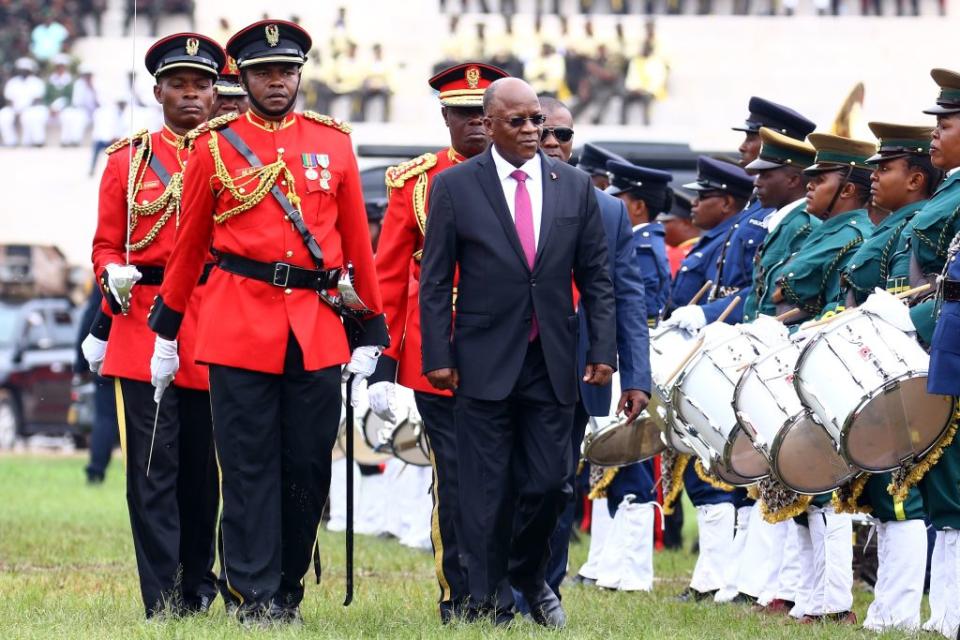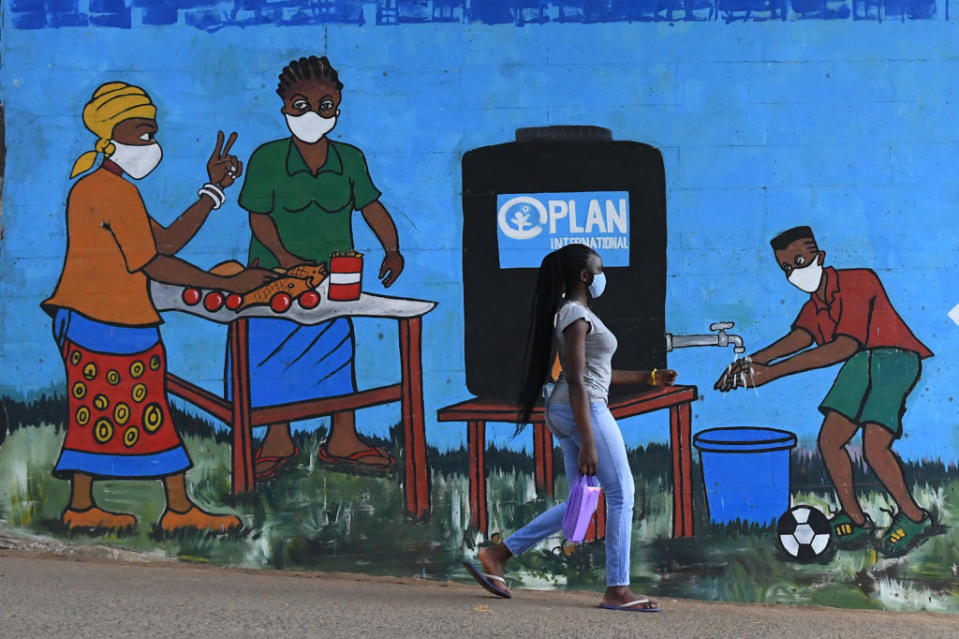'Dead bodies everywhere': A nation's secret coronavirus crisis
It’s been nearly 100 days since the African nation of Tanzania recorded a single new coronavirus case – marking an incredible achievement among a continent hit hard by the virus, or a ghastly cover-up.
Given the pronouncements of the country’s increasingly autocratic president, John Magufuli, international observers firmly believe the latter.
Mr Magufuli has already declared the scourge “absolutely finished” and encouraged tourists to come back to his country.
In June, the country’s president again claimed the country is free of the coronavirus because of the power of prayer — six weeks after his government stopped publicly updating virus data.
Mr Magufuli has disparaged social distancing and mask wearing, instead promoting claims of miracle cures and divine intervention. As the pandemic spread around the globe, unlike other African countries, Tanzania did not opt for strict lockdown measures, although some mass gatherings were banned.

However, footage posted online during the pandemic showing night-time burials has raised serious questions about the severity of the outbreaks experienced in the country.
The World Health Organisation last heard from Tanzania on April 29, when the country reported 509 cases and 21 deaths from COVID-19, in what would be a strikingly high death rate.
As early as May, there were major fears of a cover-up over the coronavirus death toll.
“Right now, we are witnessing a lot of mourning, burials and dead bodies everywhere,” opposition leader Zitto Kabwe said.
“Without transparency, the citizens will be more scared, which may cause even more deaths.”
The country’s health authorities later promised to stop the secret night burials. However, the government has continued to marginalise testing labs and lead a crackdown on anyone who dares raise concerns about the virus’s spread in his East African country, or the government’s response to it.
Critics have been arrested, and opposition politicians and rights activists say their phones are being tapped.

In Neighbouring Kenya, there has been nearly 29,000 known coronavirus cases recorded to date and at least 460 deaths. Previously, Kenyan authorities denied entry to 51 Tanzanian truck drivers who had tested positive at border points.
Meanwhile in Mozambique, which also borders Tanzania, there have been more than 2,630 official cases and at least 19 deaths attributed to COVID-19. Nearby South Africa has the fifth most known cases in the world.
The Tanzanian president has questioned, even fired, health officials and refused to limit people’s movements.
He also claimed his son was healed of COVID-19 by drinking a mixture of ginger and lemonade.
“When I came to power they said we have cases of the Zika virus and I fired the person who announced that ... Since I fired him five years ago, Tanzania has not had cases of Zika,” Mr Magufuli said in June.
“Now we have corona. They said bodies will be lying on streets in Africa. But they did not know God loves Tanzania,” he said. “We prayed for three days and the coronavirus is finished.”
Victoria sees drop in new COVID cases amid hope second wave is almost over
Mum says her unborn baby died as she underwent coronavirus test
New Zealand's coronavirus strategy is 'very dangerous', Aussie health chief says
Africa’s virus cases pass one million – but certainly much higher
Last week Africa's confirmed coronavirus cases surpassed one million, but global health experts say the true toll is likely several times higher, reflecting the gaping lack of testing for the continent's 1.3 billion people.
While experts say infection tolls in richer nations can be significant undercounts, large numbers of undetected cases are a greater danger for Africa, with many of the world's weakest health systems.
The World Health Organisation calls the milestone a "pivotal point" for Africa as infections in several countries are surging.
The virus has spread beyond major cities "into distant hinterlands" where few health resources exist and reaching care could take days.

Immediately knowing they were at a disadvantage, African nations banded together early in the pandemic to pursue badly needed testing and medical supplies and advocate for equitable access to any successful vaccine. Swift border closures delayed the virus' spread.
But Africa's most developed country, South Africa, has strained to cope as hospital beds fill up and confirmed cases are over a half-million, ranking fifth in the world.
The country has Africa's most extensive testing and data collection, and yet a South African Medical Research Council report last week showed many COVID-19 deaths were going uncounted. Other deaths were attributed to other diseases as people avoid health centres and resources are diverted to the pandemic.
It's all a warning for Africa's other 53 countries of what might lie ahead.
While dire early predictions for the pandemic have not played out, "we think it's going to be here at a slow burn," the WHO's Africa chief, Matshidiso Moeti, said last week.
African nations overall have conducted just 8.8 million tests since the pandemic began, well below the Africa Centers for Disease Control and Prevention's goal of 13 million per month.
with AP
Do you have a story tip? Email: newsroomau@yahoonews.com.
You can also follow us on Facebook, Instagram and Twitter and download the Yahoo News app from the App Store or Google Play.

 Yahoo Lifestyle
Yahoo Lifestyle 


